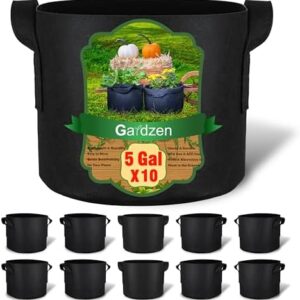Sustainability is a buzzword that we hear all the time these days. From reducing single-use plastics to supporting eco-friendly businesses, there are countless ways to make a positive impact on the environment. But did you know that sustainability can start right in your own backyard? That’s right – your garden can be a powerful tool for promoting sustainability and making a difference in the world.
Gardening is not just about growing beautiful flowers or delicious vegetables – it’s about nurturing the earth and giving back to the environment. By adopting sustainable practices in your garden, you can reduce your carbon footprint, conserve resources, and create a more resilient ecosystem right outside your door.
So, how can you make your garden more sustainable? It’s easier than you might think! Here are some simple tips to get you started:
1. Compost, compost, compost: Composting is one of the easiest and most effective ways to reduce waste and enrich your soil. Instead of throwing away your kitchen scraps and yard waste, turn them into nutrient-rich compost that can be used to fertilize your plants. Not only does composting divert organic waste from landfills, but it also helps to improve soil structure and retain moisture, reducing the need for synthetic fertilizers and water.
2. Grow native plants: Native plants are well-adapted to your local climate and soil conditions, making them more resilient and less dependent on chemical inputs. By planting native species in your garden, you can provide food and habitat for local wildlife, support biodiversity, and conserve water. Plus, native plants are usually low-maintenance and require less water and care than non-native species, making them a sustainable choice for busy gardeners.
3. Use organic gardening practices: Say no to synthetic chemicals and pesticides and opt for organic gardening methods instead. Organic gardening promotes soil health, biodiversity, and natural pest control, without the harmful effects of chemical inputs on the environment and human health. Consider using compost, mulch, and natural pest deterrents to keep your garden healthy and thriving without relying on synthetic products.
4. Conserve water: Water is a precious resource that should be used wisely in the garden. To reduce water waste and conserve this valuable resource, consider installing a rain barrel to collect rainwater for irrigation, mulching your garden beds to retain moisture, and watering plants in the early morning or evening to minimize evaporation. Additionally, choose drought-tolerant plants that require less water and group plants with similar watering needs together to optimize irrigation efficiency.
5. Support pollinators: Pollinators play a crucial role in plant reproduction and food production, but they are facing increasing threats from habitat loss, pesticides, and climate change. By creating a pollinator-friendly garden with a variety of flowers, shrubs, and trees that provide nectar and pollen sources for bees, butterflies, and other pollinators, you can help support their populations and ensure the health of your garden ecosystem. Avoid using neonicotinoid pesticides that harm pollinators and opt for organic pest control methods instead.
6. Reduce waste: From plastic plant pots to disposable gardening tools, there are many ways that gardening can generate waste. To reduce your environmental impact, opt for biodegradable or reusable materials whenever possible, and recycle or upcycle old gardening supplies instead of throwing them away. Consider starting a seed-saving program to save seeds from your own plants for future use, instead of buying new seeds each year.
7. Encourage wildlife: A healthy garden is teeming with life, from beneficial insects to birds and small mammals. By creating diverse habitats with native plants, water sources, and shelter, you can attract a wide range of wildlife to your garden and contribute to the overall health of the ecosystem. Provide nesting boxes, bird feeders, and butterfly houses to encourage wildlife to make your garden their home, and avoid using chemical pesticides that can harm beneficial insects and other wildlife.
By implementing these sustainable practices in your garden, you can make a positive impact on the environment and create a more resilient and vibrant outdoor space for yourself and future generations to enjoy. Remember, sustainability starts with small actions that add up to make a big difference – so start in your garden, and watch your efforts bloom into a greener, healthier world.






